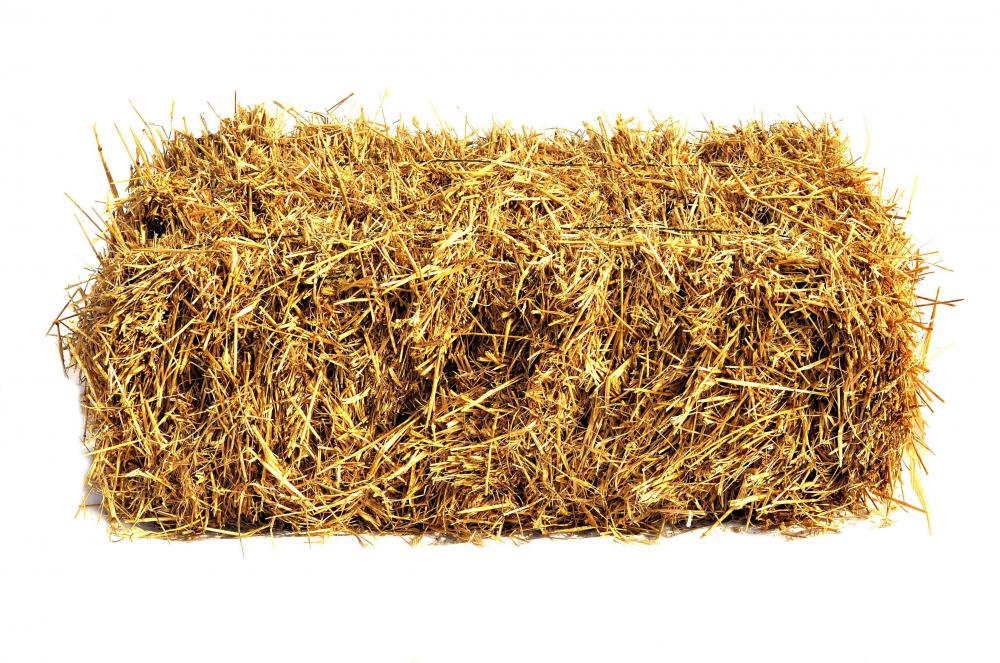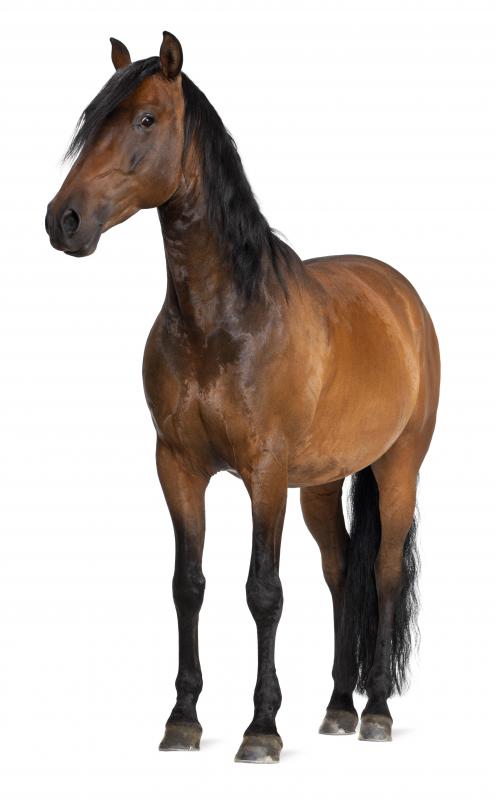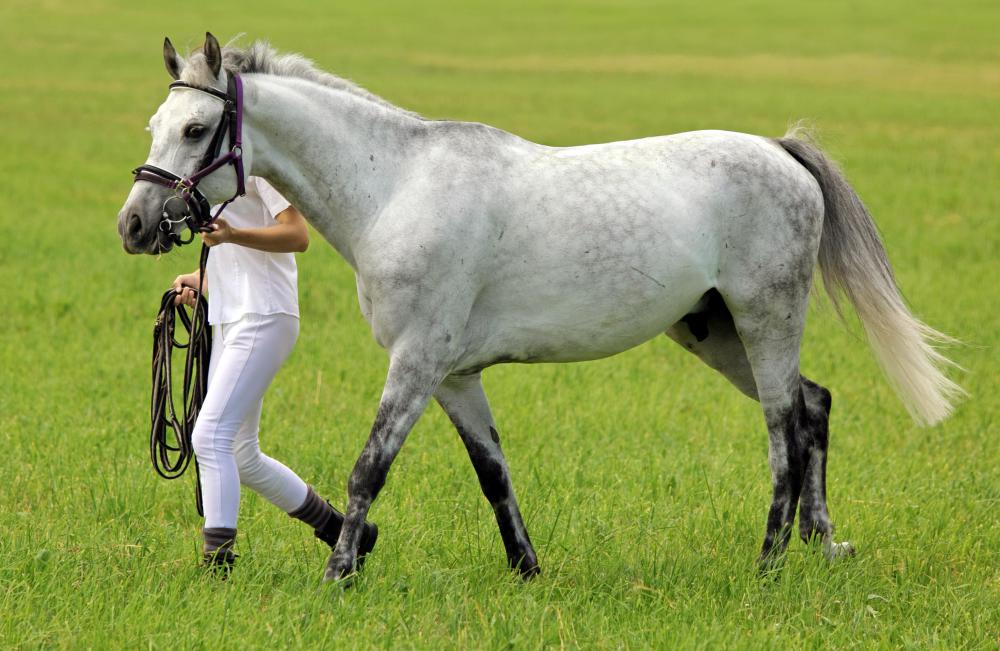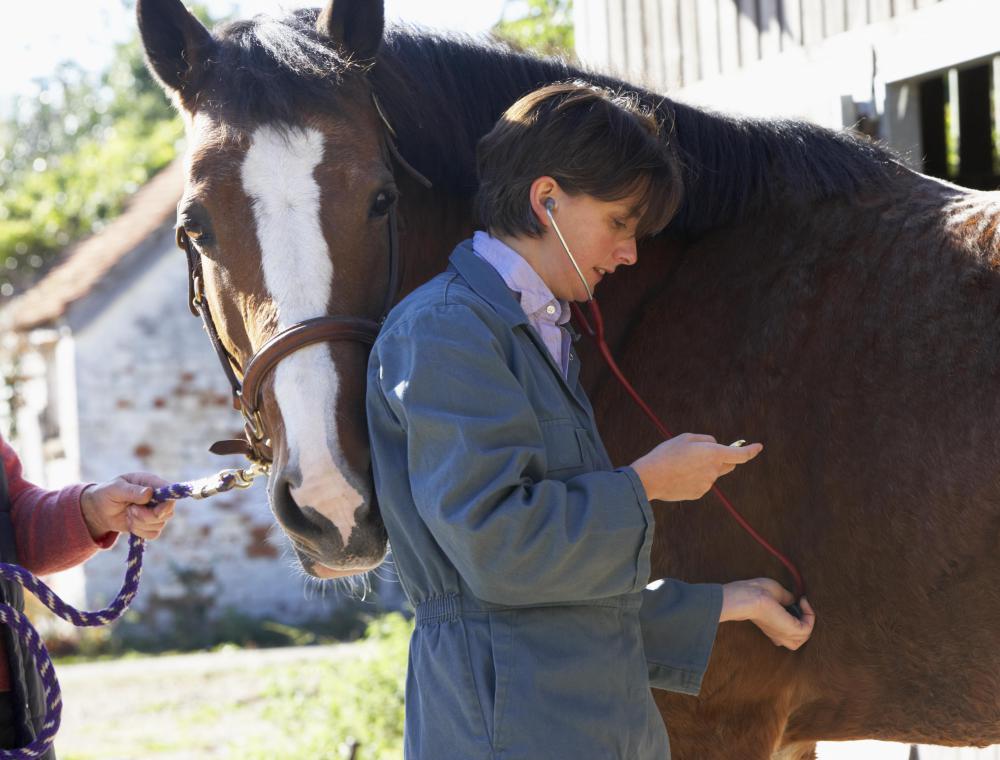At AllThingsNature, we're committed to delivering accurate, trustworthy information. Our expert-authored content is rigorously fact-checked and sourced from credible authorities. Discover how we uphold the highest standards in providing you with reliable knowledge.
In Horses, what is Colic?
In horses, colic is a painful and sometimes fatal condition which can be caused by a number of things. The word colic is actually an umbrella term for a variety of conditions which cause abdominal pain, and since the type can be difficult to distinguish, the term is used generically to refer to any kind of intestinal discomfort. This condition is the leading natural killer of horses, although some types are much less likely to be fatal than others. If a horse is displaying symptoms of colic, a veterinarian should be contacted immediately.
Signs of colic include increased restlessness, a desire to roll or thrash on the ground, pawing at the ground, or irritability. In addition, a colicky horse may kick at its own stomach, curl its upper lip, and repeatedly move its head toward its stomach, sometimes snapping or biting at the flanks as well. As this condition is extremely painful, a colicky horse can be dangerous to be around. Care should always be taken around a sick horse, and people who are not experienced with the animal should stand clear to prevent injuries. If your horse is showing symptoms, take away its food and water and check vital signs. Call a veterinarian, and try to keep the horse standing, rather than rolling and bucking, which may cause gastric torsion, or a twisting of the intestines. While some walking can be good, a colicky horse should not be walked to exhaustion.

Common forms of this condition include impaction, gas, spasmodic, displacement, colitis, and rupture. The last three can be fatal if not promptly addressed, while the first three are easier to treat, especially if caught early. Impaction colic occurs when the intestines are blocked by material that the horse has ingested. This condition is especially common with horses which are fed on the ground, because they tend to ingest sand and dirt with their food. Gas colic is caused by a painful buildup of gas in the intestines, while spasmodic colic happens when involuntary muscle contractions cause the intestines to seize painfully.

Displacement or torsion happens when the intestines twist, and it can be rapidly fatal. As the intestines twist, blood supply is cut off, which can result in death of part of the intestinal tract. This, in turn, can lead to an infection such as peritonitis, another fatal cause of colic. Colitis and peritonitis are both caused by infections, which can be a result of bacterial infestation, surgery, or unknown conditions. Rupture occurs when the horse has overeaten, especially foods such as grain or dehydrated vegetables, which expand in the stomach, causing the stomach and intestines to rupture and leak food and bacteria into the abdominal cavity.

Colic can be common even among horses which are well cared for. However, a few steps can help to prevent it. Make sure to turn horses out onto pasture regularly, and exercise them on a regular schedule. Refrain from feeding and watering horses until they have totally cooled down from exercise, and feed hay before grain. Do not allow horses to access unclean food or water, and always dispose of spoiled food safely. Finally, keep an eye on horses, and at the first sign of distress, contact a veterinarian for treatment.
Frequently Asked Questions
What exactly is colic in horses?

Colic in horses refers to abdominal pain that can be caused by a variety of gastrointestinal issues, ranging from gas accumulation to intestinal twisting. It's a symptom rather than a disease and is considered a veterinary emergency due to its potentially life-threatening nature.
How common is colic in horses?
Colic is one of the most common emergencies in horses. According to the American Association of Equine Practitioners (AAEP), approximately 4-10% of the horse population experiences colic each year. Early detection and treatment are crucial for a positive outcome.
What are the signs of colic in horses?

Signs of colic in horses include restlessness, pawing at the ground, looking at the flank, lying down more than usual or at unusual times, rolling, sweating, rapid breathing, and a lack of appetite. Horses may also have a high heart rate and reduced gut sounds. Immediate veterinary attention is essential if colic is suspected.
What causes colic in horses?
Colic in horses can be caused by a variety of factors, including dietary changes, lack of access to clean water, ingestion of sand or foreign objects, parasites, dental problems, and stress. Some causes, like twisted intestines or impactions, may require surgical intervention.
Can colic in horses be prevented?
While not all cases of colic can be prevented, management practices can reduce the risk. These include regular deworming, dental care, providing constant access to clean water, maintaining a consistent feeding schedule with high-quality forage, and minimizing stress. Regular exercise and avoiding abrupt changes in diet are also important preventive measures.
What is the treatment for colic in horses?
Treatment for colic in horses depends on the cause. Mild cases may resolve with pain medication and walking, while more severe cases might require fluid therapy or surgery. A veterinarian will assess the horse's condition through physical examination, possibly including rectal palpation and abdominal ultrasound, to determine the appropriate course of action.
AS FEATURED ON:
AS FEATURED ON:















Discuss this Article
Post your comments